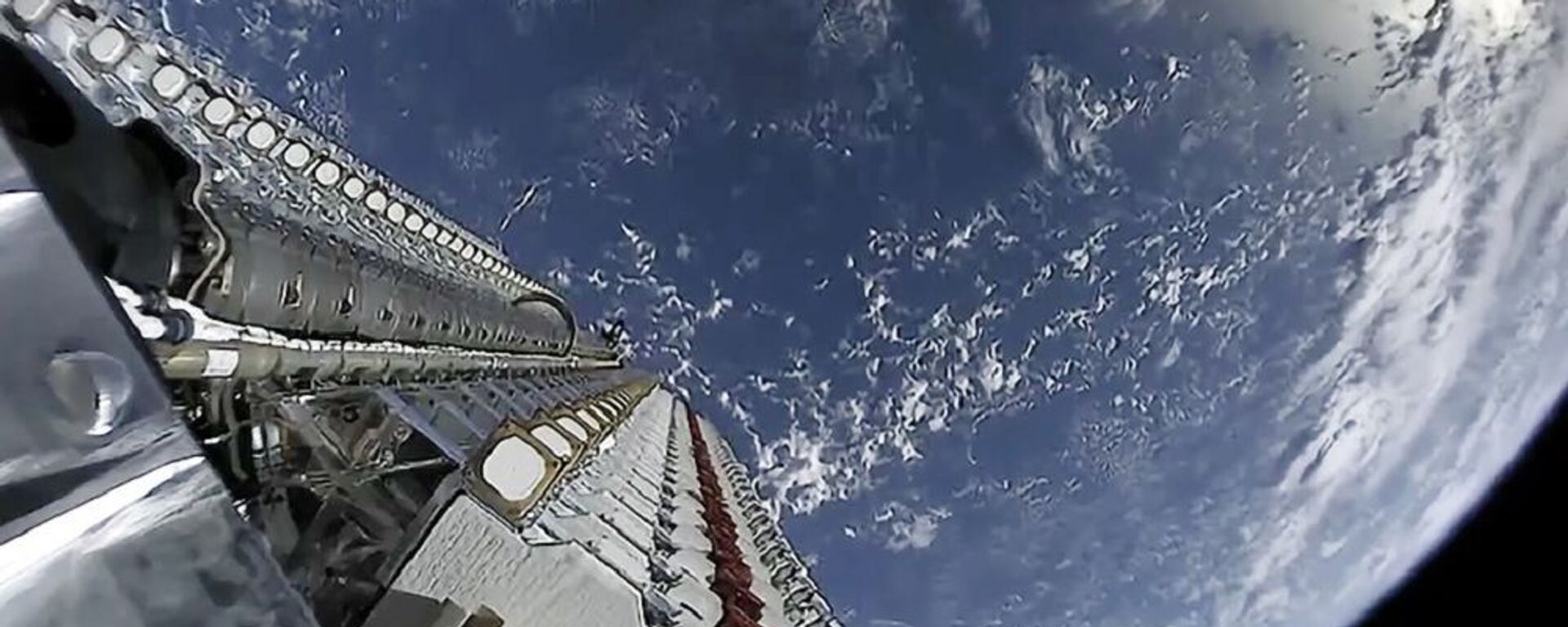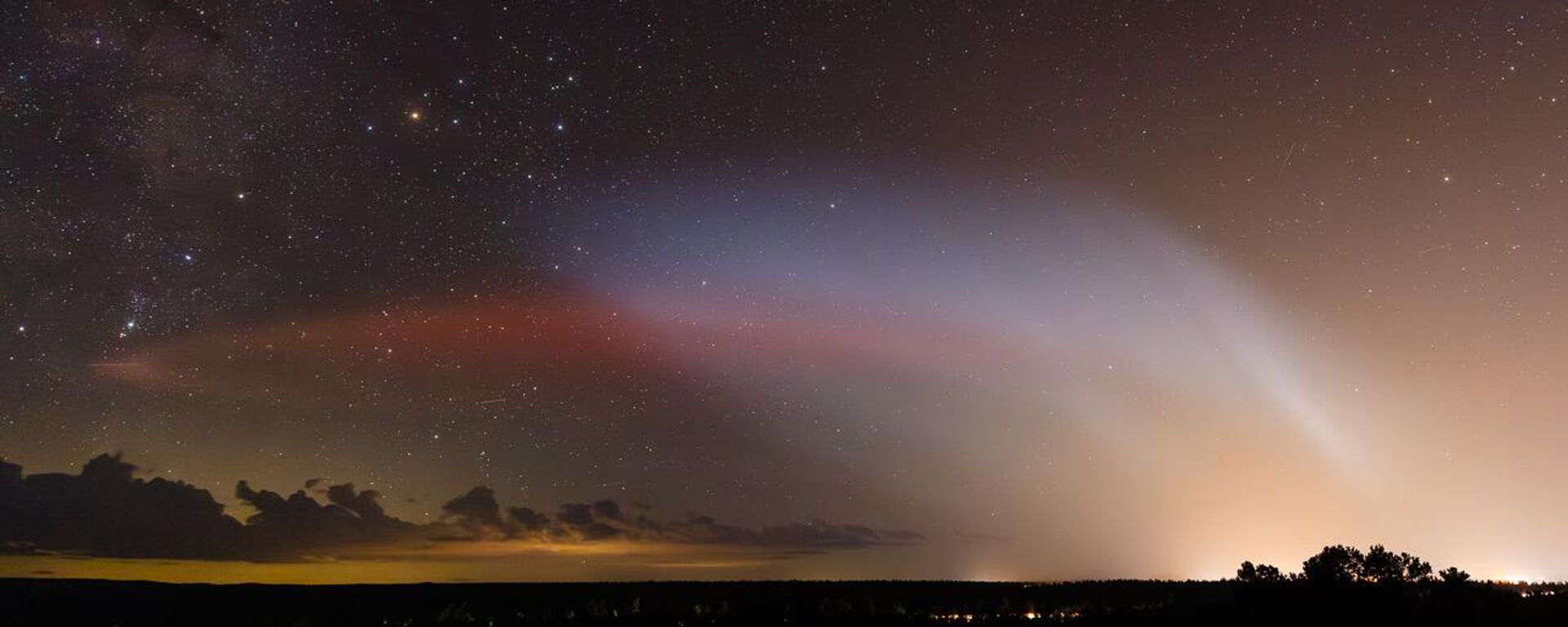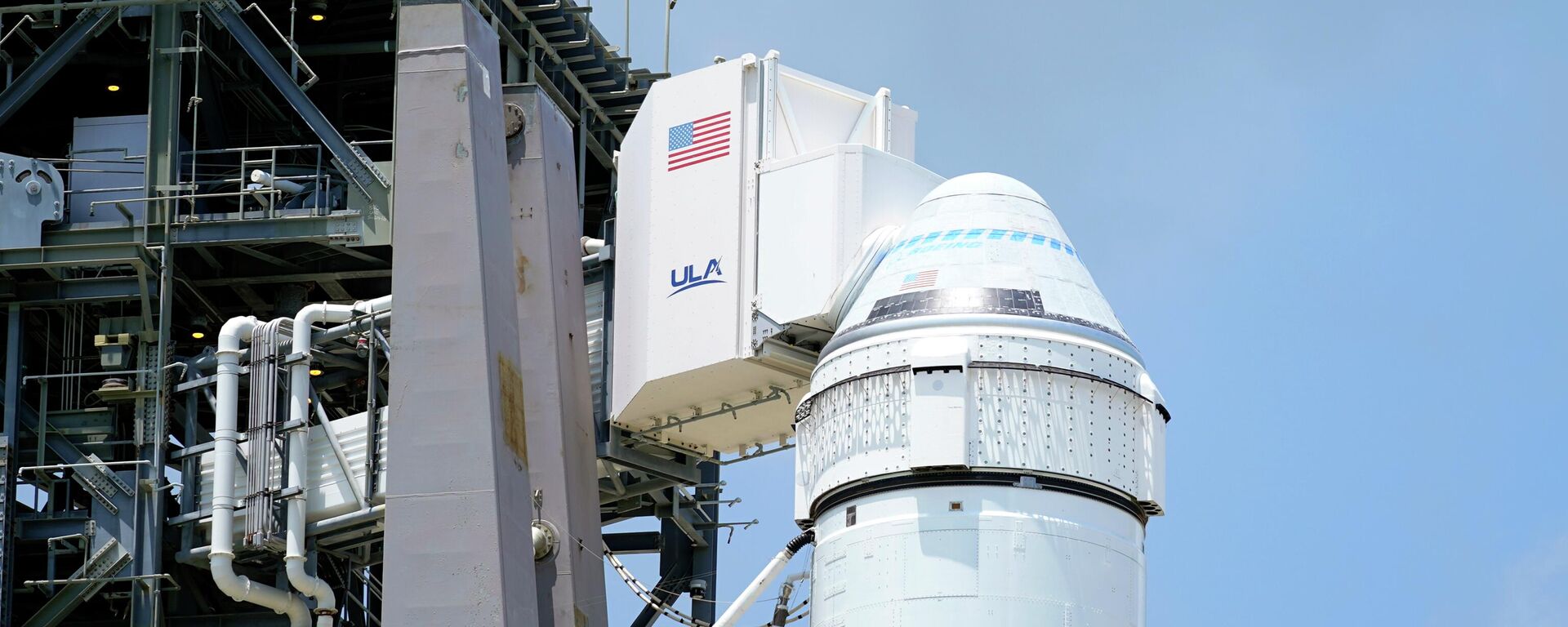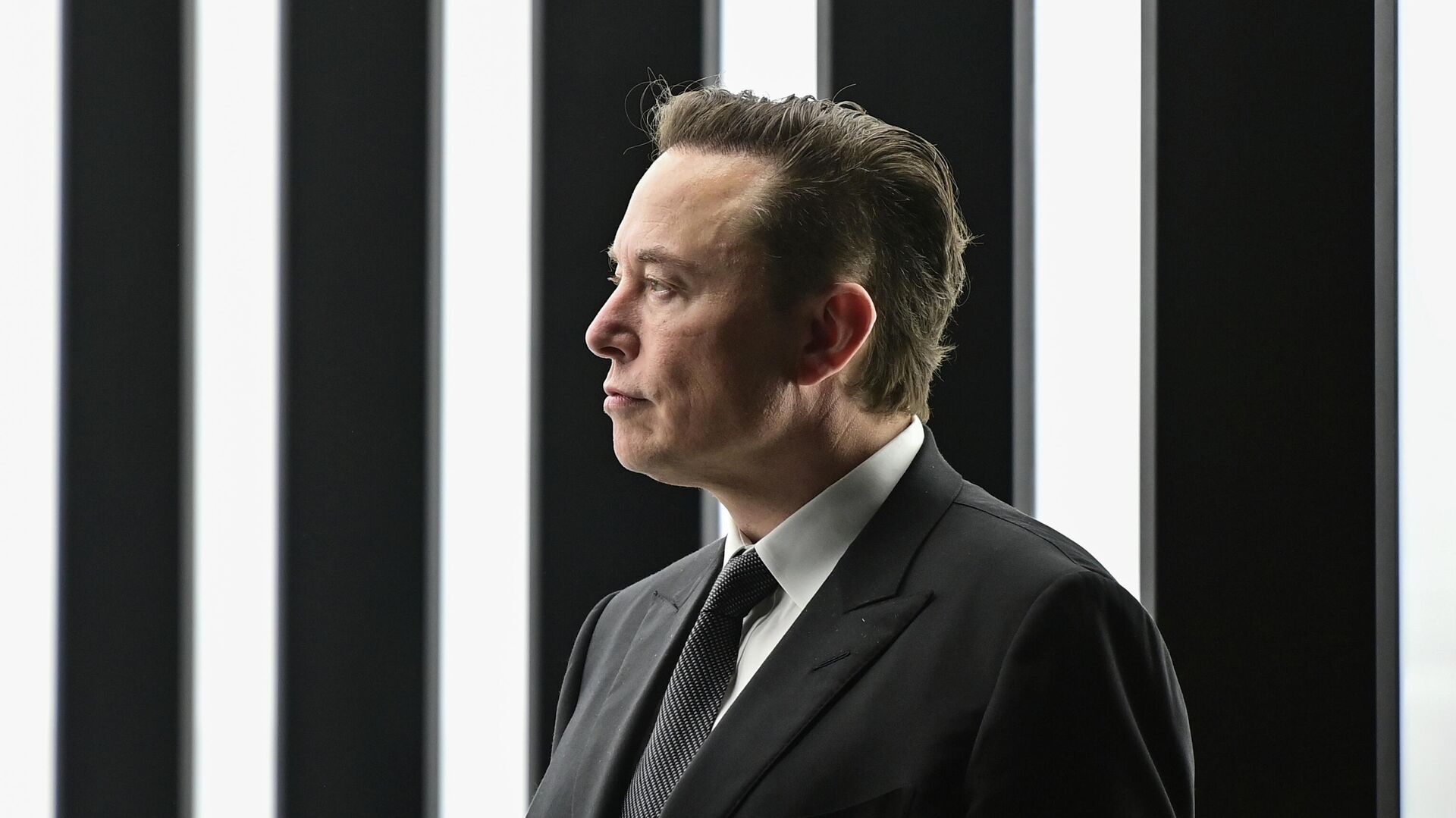https://sputnikglobe.com/20231129/has-power-of-starlink-turned-elon-musk-into-tech-oligarch-1115283015.html
Has Power of Starlink Turned Elon Musk Into Tech Oligarch?
Has Power of Starlink Turned Elon Musk Into Tech Oligarch?
Sputnik International
Elon Musk's Starlink satellites have become a focal point of discussions relating to both of the major security crises in the world today – the Israel-Hamas conflict in Gaza and NATO’s proxy war against Russia in Ukraine. What are the risks of concentrating such an incredible amount of power in the hands of one individual? Sputnik explores.
2023-11-29T15:35+0000
2023-11-29T15:35+0000
2023-11-29T16:38+0000
analysis
elon musk
volodymyr zelensky
benjamin netanyahu
israel
russia
ukraine
nato
sputnik
hamas
https://cdn1.img.sputnikglobe.com/img/07e6/0b/09/1103947517_0:164:3059:1884_1920x0_80_0_0_d1951eaf1ea1befa0c3160d8b46fa696.jpg
Israeli communications minister Shlomo Karhi announced on Monday that a preliminary agreement had been reached with SpaceX allowing the company’s Starlink Internet satellites to operate in the Gaza Strip.Musk arrived in Israel this week for talks with senior Israeli officials, including Prime Minister Benjamin Netanyahu and President Isaac Herzog, ostensibly to discuss the risks of “rising anti-Semitism online,” less than two weeks after the tech billionaire’s endorsement of what Israel’s defenders and legacy media have dubbed to be an “anti-Semitic post.”In late October, Musk promised to provide Starlink Internet access to internationally-recognized aid organizations working in Gaza after the strip’s Internet link to the outside world was cut off by the Israeli military.Musk replied that he was “not so naïve” and that “extraordinary measures” would be taken to make sure that Starlink would be used only “for purely humanitarian reasons,” with both the US and Israeli governments doing a “security check” before SpaceX turned on “even a single terminal.”The preliminary deal announced on Monday seems to indicate that the dispute between Mr. Musk and the Israeli government has been squashed, with Karhi expressing “hope” that the billionaire’s visit to Israel would “serve as a springboard for future endeavors.”From Tech Billionaire to Geopolitical ArbiterMusk’s wrangling with Tel Aviv amid the Palestinian-Israeli crisis is at least the second time in less than a year that the billionaire's Starlink satellite constellations have turned into a political and even geostrategic bargaining chip in a major crisis.Musk’s decision sparked a vicious dispute with Ukrainian officials, with a senior advisor to Ukrainian President Volodymyr Zelensky accusing the billionaire of “committing evil” by not allowing SpaceX assets to be used in Crimea attacks.Musk responded with a meme tweet mocking President Zelensky.Not allowing itself to become dependent on the American businessman’s good graces, Russia deployed an array of radio-electronic warfare tools to counter Starlink, prompting Musk to admit last October that defending the satellites against cyberattacks and jamming was “getting harder” and that even amid the diversion of resources, “Starlink may still die.”Besides Gaza and Ukraine, Starlink has been caught in the crosshairs of skepticism from observers and governments around the world for its potential entanglement in global conflicts.In Latin America, for instance, the satellite Internet service has reportedly become popular among criminals gangs operating in remote areas of the Amazon rainforest. In Iran, authorities have expressed concerns about Starlink’s use by pro-Western protesters seeking to overthrow the country’s government.In Africa, observers have expressed concerns about Starlink’s contracts to supply Internet access to the US and French militaries, thus helping to prop up the West's attempts to hang on to a unipolar world order dominated by the United States and its allies.It's worth remembering that Musk, despite his level-headedness on issues like the use of Starlink in Crimea, has not been above advancing the Western unipolar agenda. In 2020, responding to a person critical of the US government’s sponsorship of a coup in Bolivia, which is rich in lithium used in the batteries powering Tesla's electric cars, Musk quipped that the US would “coup whoever we want!”Not a Matter of Good or EvilWhatever Musk’s motivations are when it comes to the deployment of Starlink satellites in global geopolitical hotspots, the question worth asking isn’t whether they contribute or take away from global peace and international security, but whether it’s acceptable for one individual to wield a comic book supervillain-level amount of power over access to vital communication technologies.On one hand, America’s global adversaries looking to build a fair, multipolar world can thank fate that SpaceX is owned by Musk, and not a neoconservative or neoliberal ideologue like George Soros, who would undoubtedly use such technological power to help Washington ‘spread democracy’ with the help of soft power tools, color revolution coups, and Tomahawk cruise missile 'freedom bombs. On the other, it must always be kept in mind that Musk’s allegiance is to the United States (and its military-industrial complex), and any country looking to preserve its sovereignty will have to rely on its own technological capabilities to counter SpaceX’s assets, not the billionaire’s good will.SpaceX’s SpaceJunkThe attempted privatization and monopolization of space is also not the only problem created by Musk’s ambitions. For years now, astronomers have expressed concerns about the threat SpaceX’s mega constellations of satellites pose to earth-based astronomical observations, pointing out, for example, that the satellites could make spotting potential deadly asteroids in outer space much more difficult, and clutter Earth’s orbit with space junk.Starlink poses a danger to other spacecraft, too, with a recent analysis revealing that the company’s satellites have had to make over 25,000 collision-avoidance maneuvers between December 2022 and May 2023 alone, with the problem expected to get exponentially worse as the number of manmade objects in space continues to grow.As if that weren’t enough of a problem, scientists have recently discovered another issue related to Musk’s satellites – the aurora-like light produced by rockets launching them into orbit, which is aid to be a telltale sign that a hole is being torn into the ionosphere, the uppermost layer of Earth’s atmosphere whose existence is crucial for life on this planet.Symptom of a Broader ProblemThe potentially fantastical, comic book-villain-style power afforded to Musk via Starlink, and SpaceX’s potential threat to the future of humanity’s exploration of the stars, are signs of a broader problem – the privatization of space - something that's been warned about many science fiction writers going back to the dawning of the space age.With governments in the United States and Europe ceding control of space-based activities to private entities like Musk’s SpaceX, Bezos’ Blue Origin and Branson’s Virgin Galactic, the future of humanity’s space activities threatens to look less like Stanley Kubrick’s science fiction epic 2001: A Space Odyssey, and more like Paul Verhoeven’s dystopian thriller Total Recall, where cutthroat competition, not cooperation between nations regulated by international treaty, determines acceptable codes of contact.But perhaps this approach shouldn't come as a surprise, given that even some nations, the United States in particular, have rejected proposed models for outer space cooperation floated by countries like Russia and China, in favor of an effort to preserve their own dwindling global hegemony, including by dismissing treaties seeking to prevent the militarization of outer space.
https://sputnikglobe.com/20231004/how-russias-space-forces-disable-starlink-satellites-without-breaking-international-law-1113930681.html
https://sputnikglobe.com/20191126/polluting-the-skies-elon-musks-spacex-satellites-could-destroy-astronomy-warns-expert--1077404441.html
https://sputnikglobe.com/20231128/spacex-auroras-scientists-say-musks-rockets-punching-atmospheric-holes-1115270670.html
https://sputnikglobe.com/20231006/amazon-launches-first-prototype-satellites-for-project-kuiper-internet-service-1113992512.html
israel
russia
ukraine
Sputnik International
feedback@sputniknews.com
+74956456601
MIA „Rosiya Segodnya“
2023
News
en_EN
Sputnik International
feedback@sputniknews.com
+74956456601
MIA „Rosiya Segodnya“
Sputnik International
feedback@sputniknews.com
+74956456601
MIA „Rosiya Segodnya“
elon musk, tech oligarch, technology, space, satellite, spacex, starlink, oligarchy, risks, dangers, analysis, business, government
elon musk, tech oligarch, technology, space, satellite, spacex, starlink, oligarchy, risks, dangers, analysis, business, government
Has Power of Starlink Turned Elon Musk Into Tech Oligarch?
15:35 GMT 29.11.2023 (Updated: 16:38 GMT 29.11.2023) Elon Musk's Starlink satellites have become a focal point of discussions relating to both of the major security crises in the world today – the Israel-Hamas conflict in Gaza and NATO’s proxy war against Russia in Ukraine. What are the risks of concentrating such an incredible amount of power in one individual's hands? Sputnik explores.
Israeli communications minister Shlomo Karhi announced on Monday that a preliminary agreement had been reached with SpaceX allowing the company’s Starlink Internet satellites to operate in the Gaza Strip.
“As a result of this significant agreement, Starlink satellite units can only be operated in Israel with the approval of the Israeli ministry of communications, including the Gaza Strip,” Karhi
wrote on X, another Musk-owned tech property.
Musk arrived in Israel this week for talks with senior Israeli officials, including Prime Minister Benjamin Netanyahu and President Isaac Herzog, ostensibly to discuss the risks of “rising anti-Semitism online,” less than two weeks after the tech billionaire’s
endorsement of what Israel’s defenders and legacy media have dubbed to be an “anti-Semitic post.”
In late October, Musk
promised to provide Starlink Internet access to internationally-recognized aid organizations working in Gaza after the strip’s Internet link to the outside world was cut off by the Israeli military.
That got him into a feud with Tel Aviv, with Karhi vowing that Israel would “use all means at its disposal to fight” Musk’s efforts, claiming Hamas would use Starlink terminals “for its terrorist activities” and that “musk [sic] knows it.”
Musk replied that he was “not so naïve” and that “extraordinary measures” would be taken to make sure that Starlink would be used only “for purely humanitarian reasons,” with both the US and Israeli governments doing a
“security check” before SpaceX turned on “even a single terminal.”
The preliminary deal announced on Monday seems to indicate that the dispute between Mr. Musk and the Israeli government has been squashed, with Karhi expressing “hope” that the billionaire’s visit to Israel would “serve as a springboard for future endeavors.”
From Tech Billionaire to Geopolitical Arbiter
Musk’s wrangling with Tel Aviv amid the Palestinian-Israeli crisis is at least the second time in less than a year that the billionaire's Starlink satellite constellations have turned into a political and even geostrategic bargaining chip in a major crisis.
Throughout 2022 and 2023, Musk first delighted and then outraged Western and Ukrainian officials and media by agreeing to let Ukraine’s army to use Starlink free of charge, and then secretly ordering SpaceX not to allow the satellite network to be used to mount attacks on Crimea, out of fears of escalating the proxy conflict against Russia into an all-out nuclear war.
Musk’s decision sparked a vicious dispute with Ukrainian officials, with a senior advisor to Ukrainian President Volodymyr Zelensky accusing the billionaire of
“committing evil” by not allowing SpaceX assets to be used in Crimea attacks.
Musk responded with a meme tweet mocking President Zelensky.
Not allowing itself to become dependent on the American businessman’s good graces, Russia
deployed an array of radio-electronic warfare tools to counter Starlink, prompting Musk to admit last October that defending the satellites against cyberattacks and jamming was “getting harder” and that even amid the diversion of resources,
“Starlink may still die.”The US military announced earlier this year that it would Pay for SpaceX's Starlink in Ukraine after Musk reportedly complained that it becoming to costly for the company to handle.
Besides Gaza and Ukraine, Starlink has been caught in the crosshairs of skepticism from observers and governments around the world for its potential entanglement in global conflicts.
In Latin America, for instance, the satellite Internet service has
reportedly become popular among criminals gangs operating in remote areas of the Amazon rainforest. In Iran, authorities have expressed concerns about Starlink’s
use by pro-Western protesters seeking to overthrow the country’s government.
In Africa, observers have expressed concerns about Starlink’s
contracts to supply Internet access to the US and
French militaries, thus helping to prop up the West's attempts to hang on to a unipolar world order dominated by the United States and its allies.
It's worth remembering that Musk, despite his level-headedness on issues like the use of Starlink in Crimea, has not been above advancing the Western unipolar agenda. In 2020, responding to a person critical of the US government’s sponsorship of a coup in Bolivia, which is rich in lithium used in the batteries powering Tesla's electric cars, Musk quipped that the US would
“coup whoever we want!”
4 October 2023, 17:31 GMT
Not a Matter of Good or Evil
Whatever Musk’s motivations are when it comes to the deployment of Starlink satellites in global geopolitical hotspots, the question worth asking isn’t whether they contribute or take away from global peace and international security, but whether it’s acceptable for one individual to wield a comic book supervillain-level amount of power over access to vital communication technologies.
Starlink’s mega-constellation of small, low Earth orbit satellites now includes roughly 5,500 spacecraft in total, and its numbers continuing to increase. With the United Nations Office for Outer Space Affairs calculating earlier this year that there were now some 11,300+ satellites in Earth orbit at the end of June 2023, that means Musk, ostensibly a private citizen, controls close to half of all operational satellites on the planet.
On one hand, America’s global adversaries looking to build a fair, multipolar world can thank fate that SpaceX is owned by Musk, and not a neoconservative or neoliberal ideologue like George Soros, who would undoubtedly use such technological power to help Washington ‘spread democracy’ with the help of soft power tools, color revolution coups, and Tomahawk cruise missile 'freedom bombs. On the other, it must always be kept in mind that Musk’s allegiance is to the United States (
and its military-industrial complex), and
any country looking to preserve its sovereignty will have to rely on its own technological capabilities to counter SpaceX’s assets, not the billionaire’s good will.The attempted privatization and monopolization of space is also not the only problem created by Musk’s ambitions. For years now, astronomers have expressed concerns about the threat SpaceX’s mega constellations of satellites pose to earth-based astronomical observations, pointing out, for example, that the satellites could make spotting potential deadly asteroids in outer space
much more difficult, and
clutter Earth’s orbit with
space junk.

26 November 2019, 09:33 GMT
Starlink poses a danger to other spacecraft, too, with a recent analysis revealing that the company’s satellites have had to make over 25,000 collision-avoidance maneuvers between December 2022 and May 2023 alone, with the problem expected to get exponentially worse as the number of manmade objects in space continues to grow.
“Right now, every six months, the number of maneuvers that are being made doubles,” Hugh Lewis, a professor of astronautics at the University of Southampton in Britain,
told Space.com in July. “It has gone up by a factor of 10 in just two years, and if you project that out, you’ll have 50,000 within the next six-month period, then 100,000 in the next, then 200,000 and so on,” he warned.
As if that weren’t enough of a problem, scientists have recently discovered
another issue related to Musk’s satellites – the aurora-like light produced by rockets launching them into orbit, which is aid to be a telltale sign that a hole is being torn into the ionosphere, the uppermost layer of Earth’s atmosphere whose existence is crucial for life on this planet.
To make matters worse, Starlink’s technological and business model of using large numbers of small, inexpensive satellites to provide clients with Internet coverage has spawned a number of copycats, with UK-based company Eutelsat OneWeb saturating low-earth orbit with over 500 satellites to date, and Jeff Bezos’-owned Kuiper Systems planning to launch over 3,200 satellites into orbit operating along 98 separate orbital planes. This will inevitably make the problems outlined above even worse.

28 November 2023, 22:33 GMT
Symptom of a Broader Problem
The potentially fantastical, comic book-villain-style power afforded to Musk via Starlink, and SpaceX’s potential threat to the future of humanity’s exploration of the stars, are signs of a broader problem – the privatization of space - something that's been warned about many science fiction writers going back to the dawning of the space age.
With governments in the United States and Europe ceding control of space-based activities to private entities like Musk’s SpaceX, Bezos’ Blue Origin and Branson’s Virgin Galactic, the future of humanity’s space activities threatens to look less like Stanley Kubrick’s science fiction epic 2001: A Space Odyssey, and more like Paul Verhoeven’s dystopian thriller Total Recall, where cutthroat competition, not cooperation between nations regulated by international treaty, determines acceptable codes of contact.
But perhaps this approach shouldn't come as a surprise, given that even some nations, the United States in particular, have
rejected proposed models for outer space cooperation floated by countries like Russia and China, in favor of an effort to preserve their own dwindling global hegemony, including by dismissing treaties seeking to prevent the militarization of outer space.

6 October 2023, 21:08 GMT









